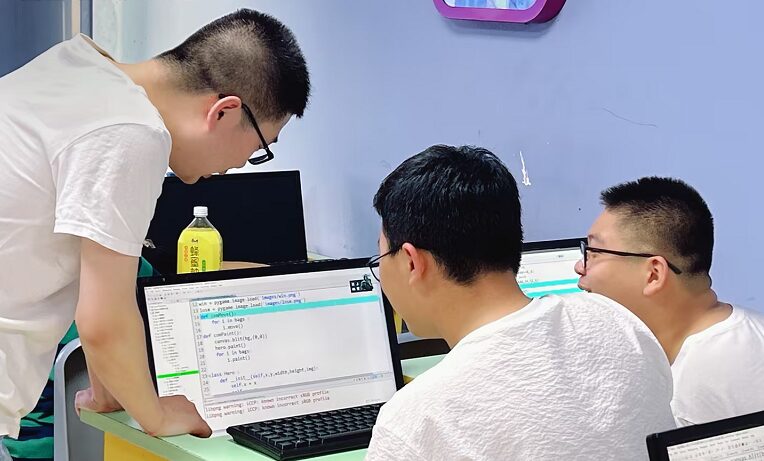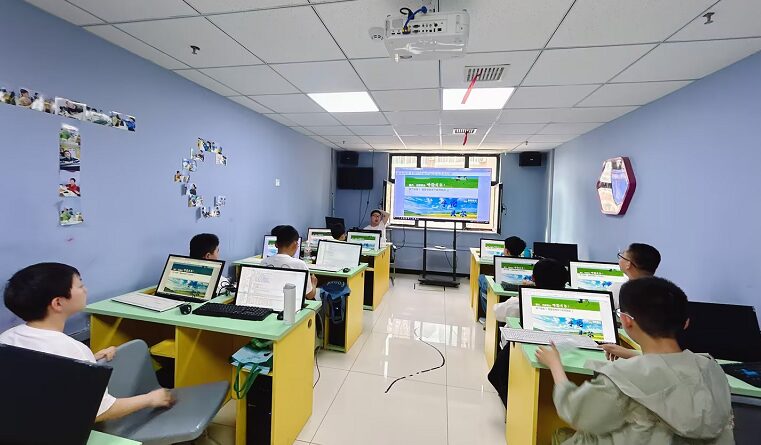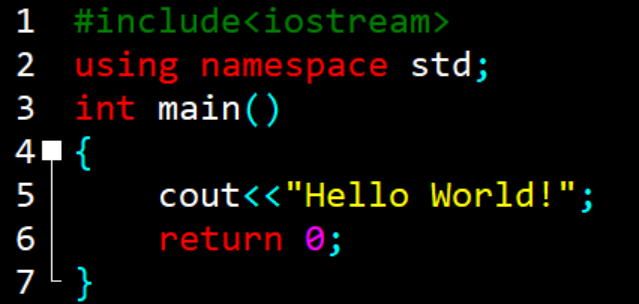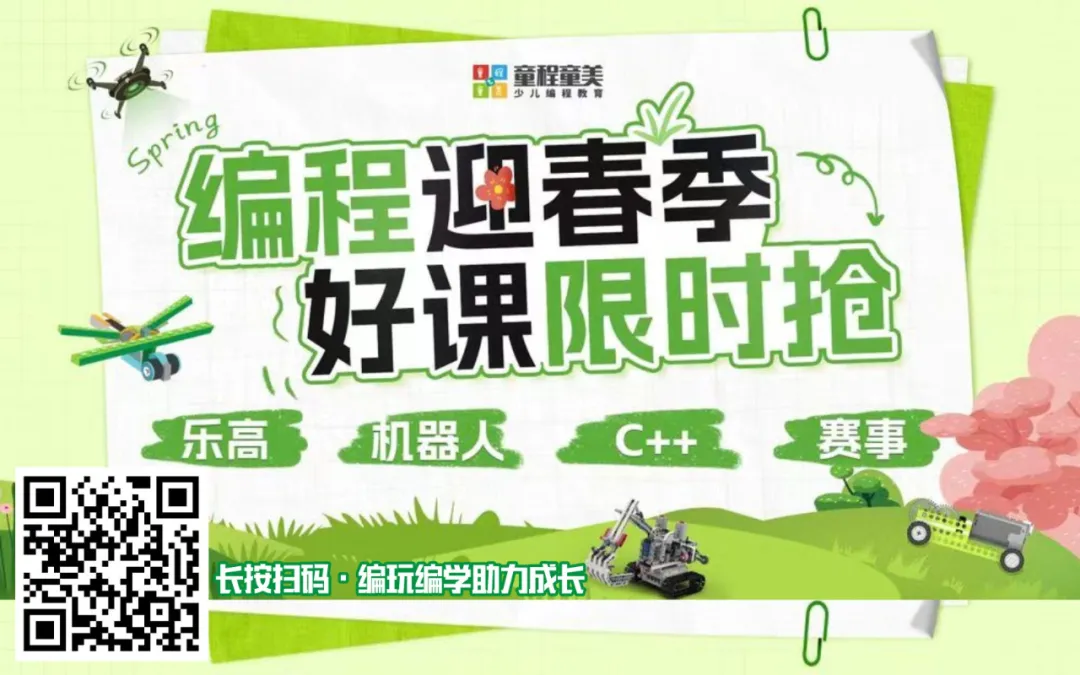Many parents of elementary school students have questions when choosing a programming language for their children:
Which one should we choose for our child, Python or C++?
Is C++ more advanced than Python?
Some parents are unsure about the differences between Python and C++, and without considering if their child is suitable for it, they choose one directly. However, this often leads to the child losing motivation after a few days of study…

01. Python

02. C++

Python only requires a single line:

This is what we often say: the earlier a programming language is invented, the harder it is to learn; the later a programming language is invented, the easier it is to learn.
C++ was invented much earlier than Python, making it a bit harder to learn. However, this does not mean C++ is more advanced than Python.
03. How to Determine Which Language is Suitable for Your Child
If your child has a good foundation in English, Python is recommended; if they have strong logical reasoning and reading comprehension skills, C++ is suggested.
Python is a pure coding programming language, and its programming statements and functions are based on English, making it more suitable for children with a certain level of English proficiency. However, children with average English skills can still learn Python and gradually master unfamiliar English words during the learning process.
C++ requires logical and analytical skills, as well as a foundation in subjects like mathematics and physics.
If learning C++ and aiming for competitions like the Olympiad, children need to have good reading comprehension skills because competition questions often contain lengthy text information, and participants need to extract and summarize key information.
2. Age and Programming Background
For children without programming experience: Python’s straightforwardness and ease of understanding make it very suitable for beginners. If the child is between 8-11 years old, we recommend starting with Python.
At the beginner stage, maintaining enthusiasm is crucial. Python’s simple syntax allows children to focus on solving problems rather than worrying about intricate syntax rules. Achieving maximum satisfaction with minimal effort can motivate children.
For children with programming experience: If the child has already been exposed to other programming languages and is in the third or fourth grade, this is the ideal stage to start learning C++. Fifth and sixth grades are suitable for increasing the intensity and pace of learning C++.
At the latest, they should start learning in junior high school. However, junior high students face significant academic pressure and limited extracurricular time, making it challenging to start learning C++ from scratch. This could negatively impact their schoolwork.
Remember: Learning programming should align with the child’s developmental stage.
3. Interest and Acceptance of Learning Mode
Interest is the best teacher. If your child enjoys games and visual programming projects, choose Python; if they like to explore problems, choose C++.
Children can use Python to do various things, such as data analysis, web development, game creation, and machine learning.
Many children who learn Python are initially attracted by its ability to create games, and through the learning process, they gradually learn to create their own small games, thereby developing programming thinking skills.
Learning C++ requires going through tedious practice and problem-solving processes. If children start with C++, they may find it tedious and lose interest early, making it difficult to continue.
4. What Type of Competitions to Participate In
Both Python and C++ can help with academic advancement, but the paths differ: if you want to plan for Olympiads, technology specialties, or gain qualifications for strong foundational programs, C++ is essential; if you want to participate in whitelist competitions, assessments, or even directly face mid-term and final exams, choose Python.
Many exams are now using Python as the assessment language. For example, in the 2023 Zhejiang college entrance examination, Python was used as the assessment language; programming level exams like GESP also use Python; and competitions like NOC and the National Youth Artificial Intelligence Innovation Challenge also include Python categories.
Overall, C++ is more direct but also more challenging.



